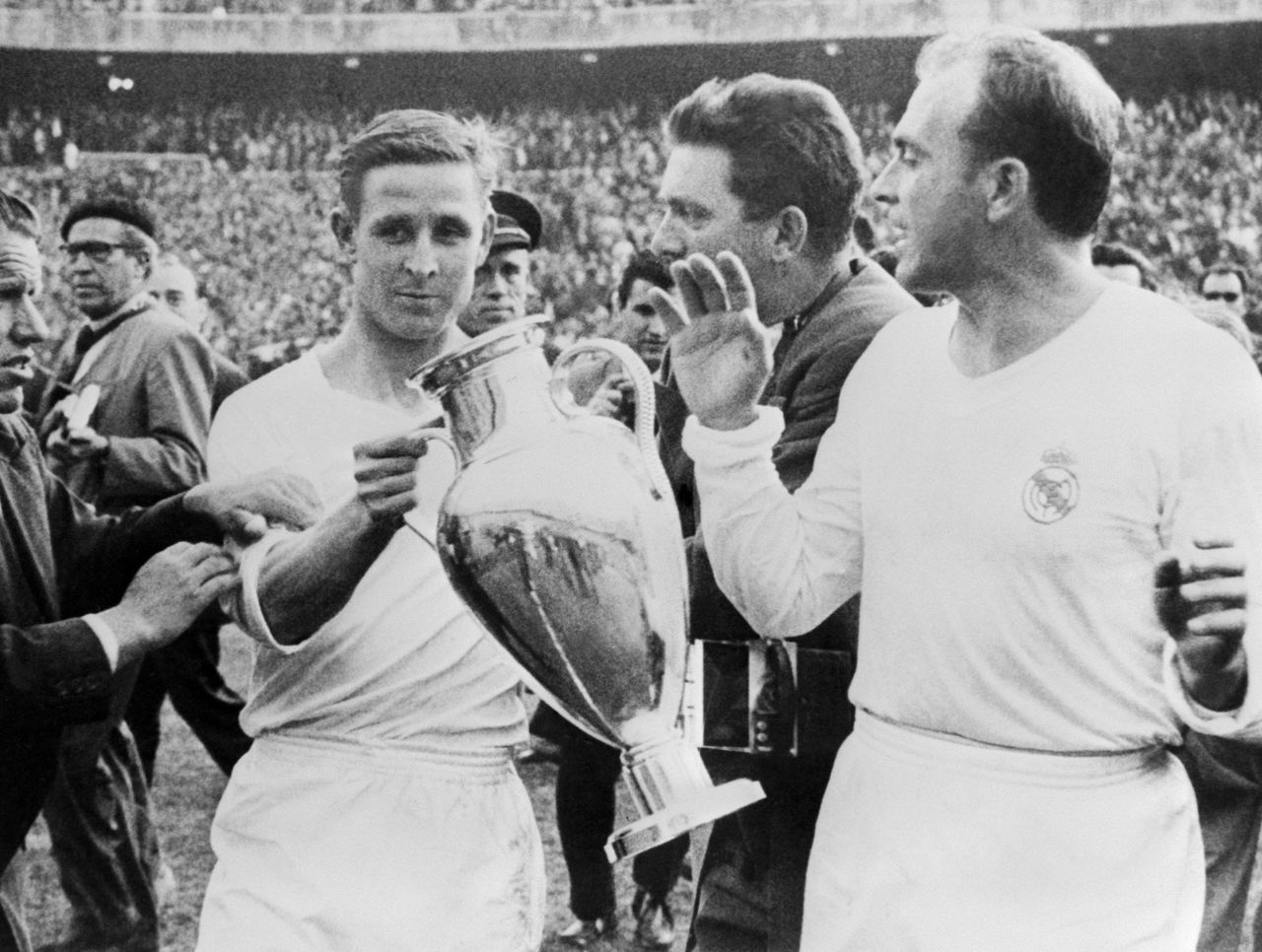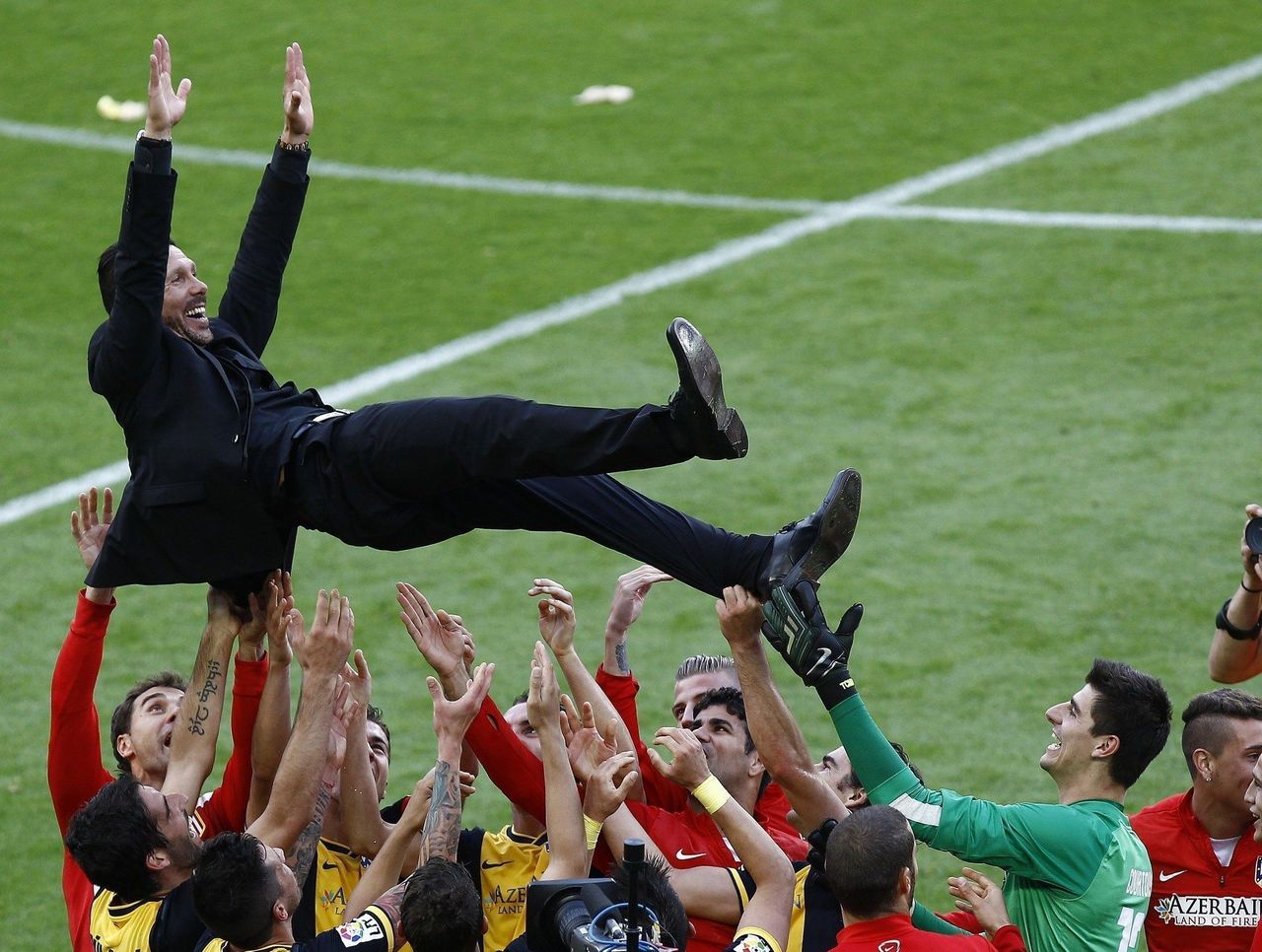The Madrid derby: El Cholo's conquest
In terms of folklore, among the Spanish derbies, El Clasico gets all the love.
A clash of capital city favourite Real Madrid and Catalan darling Barcelona, El Clasico has become a symbol of both opposing nationalist views and the battle for La Liga's best. Alfredo Di Stefano's 1950's Blaugrana snubbing gave this biannual tilt a kick in the rear, and the perennial excellence of the two sides has only continued the growth of mythology associated with one of world football's great rivalries.
If El Clasico is played under an unavoidable political veil, El Derbi madrileno between Atletico and Real is a contest forged on football with the tale of city rivals perpetually separated by divides in class and quality acting as a backdrop.
Heading into Saturday's tilt at the Wanda Metropolitano, and that once evident rift between the two Madrid sides has narrowed, and it has more to do with that than the fact the two teams enter the contest level on points. One man is rewriting that script.
It wasn't always this way.
An inescapable gap
Real Madrid didn't wait long for success. Just three years after its founding in 1902 and under the name Madrid FC, the club won its first domestic cup. It was the first of four on the bounce. Twenty years later, the Spanish top flight was formed, and again, Real had to wait only three years for its first title. Then came Santiago Bernabeu, who in 1945 became club chief and ushered in an emphasis on luring footballing superstars to the stadium with which he shared a name. Di Stefano's arrival in 1953 kickstarted a run of eight titles in 11 years, and the rest is history.

If Real became a symbol of dominance and opulence, city rival Atletico was one of working-class modesty and acceptance mired in an inferiority complex. That feeling of inadequacy is steeped in history. Minutes from a maiden continental conquest in the 1973-74 European final with Bayern Munich, Atletico conceded an absurd extra-time goal to force the first and only ever European final replay. That match ended 4-0, prompting then-club president Vincente Calderon to declare Atletico "somos El Pupas" - the jinxed one.
That depiction would follow the club for decades, and as a result, compliance with defeat became a cozy ideal.
The self-deprecating status shined its brightest against rival Real. Between the turn of the 21st century and the 2013-14 campaign, Atletico didn't win a single league derby against its heated rival, a span of 22 matches without a victory. A similar trend punctuated Copa del Rey meetings between the pair. While Florentino Perez was luring the Galacticos to the Bernabeu, Jesus Gil's presidency at Atletico was leaving the club in shambles.
Like Bernabeu and Di Stefano had transformed Real, Atletico was desperate for a figure to alter its fate, and on Dec. 23, 2011, Christmas came in the form of Diego Simeone.
The dawn of a new identity
Rock bottom was in the shape of a humbling loss to third-tier Albacete, prompting Gregorio Manzano's sacking and Simeone's subsequent hiring. Almost immediately, even-tempered complacency was transformed into a bombastic confidence. "El Cholo" Simeone became the face of a club brandishing a newfound swagger, and with it came success. Defensive rigidity, composure and a willingness to attack on the counter was the emblem of a side that fully backed its gaffer.
Months after he was appointed, Simeone led Atletico to a Europa League title. A year later, it was the Copa del Rey, and in 2013-14, the club won a record eight matches to kick off the campaign before winning La Liga over Barcelona at the Camp Nou. Suddenly, acceptance in being "El Pupas" became courage under "El Cholo."

It translated to El Derbi madrileno as well. The 2012-13 Copa del Rey final win at the Bernabeu against Real gave Atletico its first ever cup victory at its rival's famed ground, and it was the first time the club won there in any competition since doing so under Claudio Ranieri in 1999. Atletico repeated that feat the next season in the league, ending a 14-year spell of La Liga losses to Los Blancos with a win before taking three of the next five league meetings between the pair. The transformation under Simeone would only become complete with a victory on the same stage that fuelled "El Pupas" 40 years earlier, and Atletico was handed the opportunity to do so with the 2013-14 Champions League final marking its first chance at continental hardware in four decades. Naturally, the opponent was Real Madrid.
Hollywood scripts with this much coincidence end up on the rubbish pile, though for Atletico, it was all part of an all-too-authentic legend, and a 4-1 defeat to Real in that final was followed again by heartbreak two years later with a catastrophic extra-time defeat in the Champions League final. The opponent? You guessed it, Real Madrid.
Like the posh Paseo de la Castellana setting for the Bernabeu was in stark contrast to Atleti's former Calderon on the working-class banks of the Manzanares, the Wanda Metropolitano is also a symbol of a divide. It's now a gap that has since narrowed significantly, and while Simeone did not renovate Atletico's new digs and lay the pitch himself, he might as well have.
Atletico enters Saturday's derby with Real a club undoubtedly reborn under Simeone, and while continuous European stumbles at the final stage remain a dangling thread to the club's past, El Derbi madrileno is no longer the one-sided contest it once was. It may very well be Spain's best derby, and perhaps it's time that it's regarded as such.
(Photos courtesy: Getty Images)